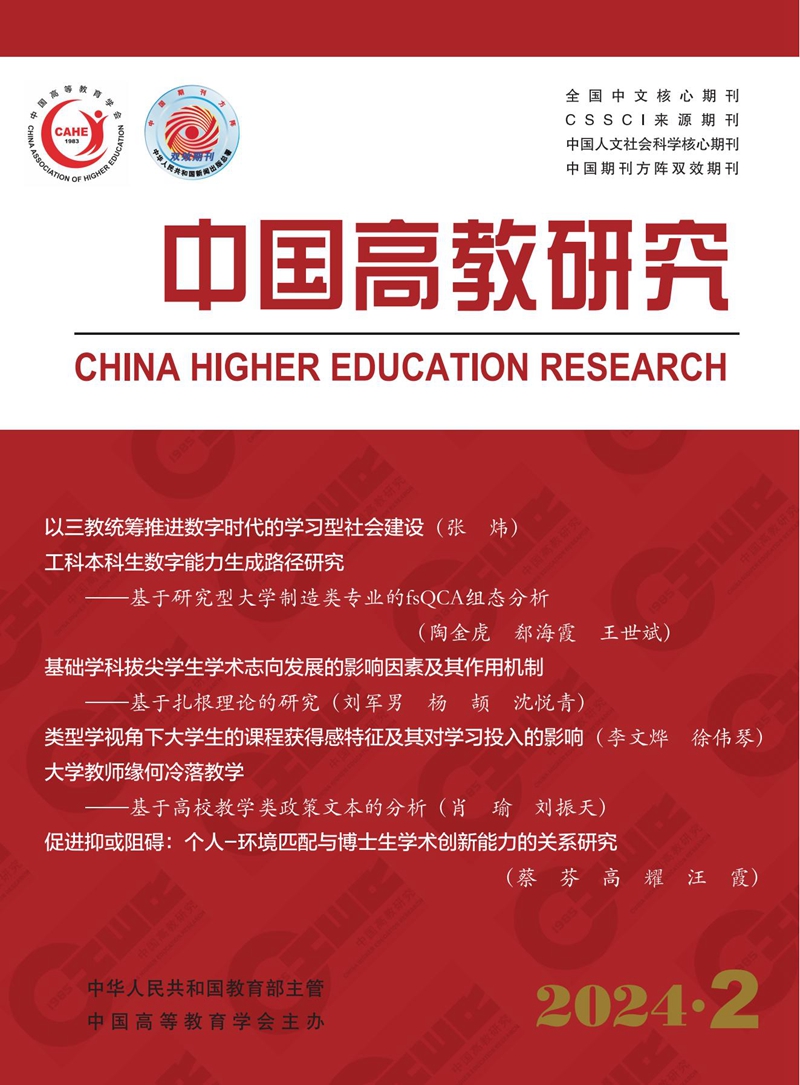The Learning and Development of Undergraduates
HUANG Ling; HAN Tingzhi
In the myriad of factors influencing undergraduate major selection, the regulatory effects of university policies have not been extensively investigated. Employing a mixed research methodology, this study, based on the analysis of 115 major selection policy texts from 38 high-level universities, conducted a survey with 1 160 participants. The findings reveal that university policies regulate undergraduate major selection behavior by defining procedures, scope, timing, opportunities, and restrictive conditions. The regulatory impact of university policy space on student major selection is realized through students’ perception of institutional policies. Therefore, universities should continue to refine major selection policies, primarily focusing on transfer policies, by expanding the range of major choices, simplifying selection procedures, reducing time and opportunity constraints, and lowering restrictive conditions. This expansion of policy space enhances students’ policy evaluation, identification, and perception, thereby strengthening their commitment and affiliation to chosen majors.
